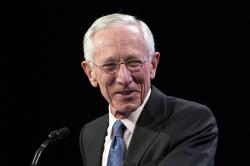

Research
BPEA | 2001 No. 2

2001, No. 2
SINCE THE PERSISTENCE OF Japan’s economic stagnation first became
apparent, the Japanese government has been offered a flood of advice from
macroeconomic policy analysis. Much of this advice emanated from the
official sector, most prominently from the U.S. Treasury and the International
Monetary Fund (IMF), but a host of academics were likewise generous
in their recommendations.1 Yet both the degree to which Japan has
followed this advice and the effects of the macroeconomic policies undertaken
remain in dispute. Economic commentators and other observers of
Japan have split over whether standard Keynesian policies were tried and
failed, whether the policies implemented had the expected effects but were
offset by other factors, or whether some of the recommended policies
(monetary expansion, in particular) never were seriously tried at all.